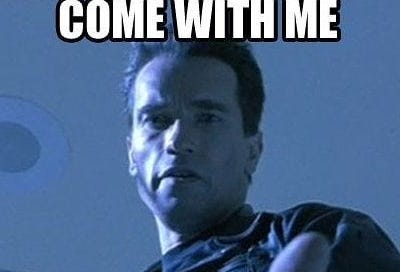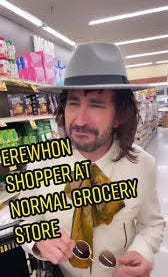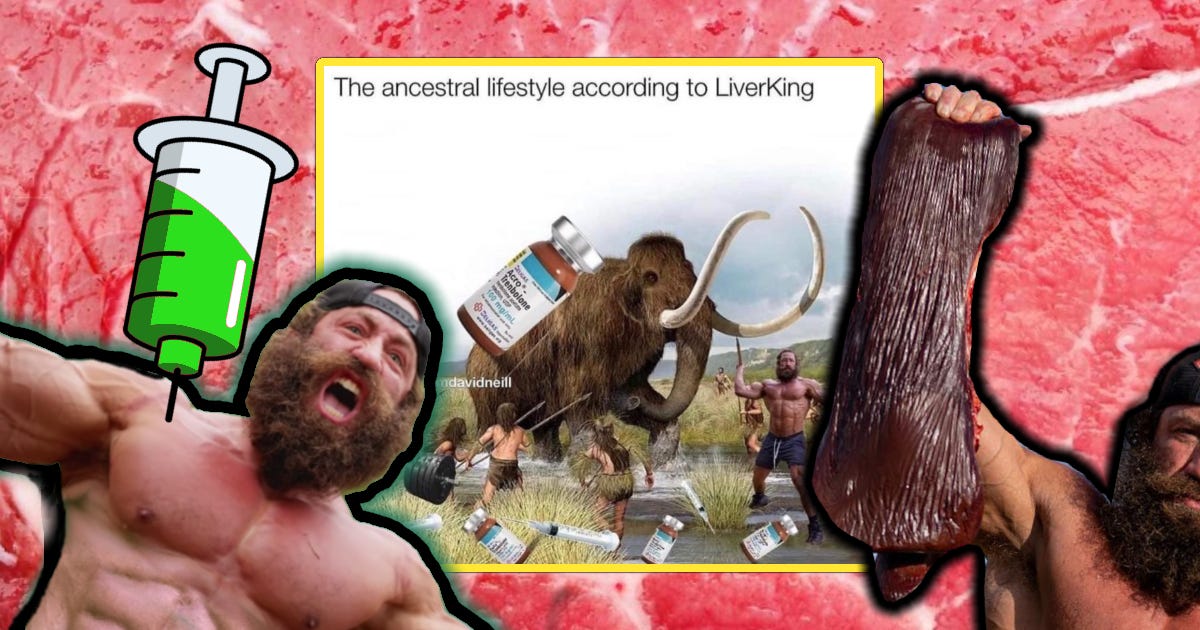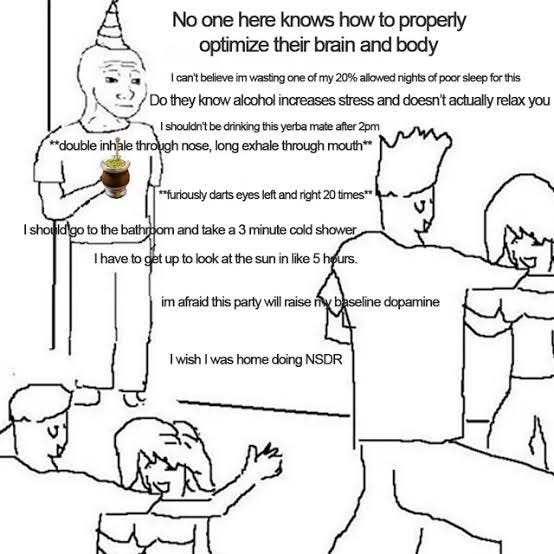According to perplexity, the US has approximately 890,028,556 health and wellness influencers today.
That's one "expert" for every three Americans. Anyone with an ab and a ring light can become your personal health coach today.
A 2023 study found that top wellness influencers mention products or services in 76% of their "educational" content. They're not health educators—they're conversion funnels.
They’ll identify that inflammation matters or that sleep quality affects hormones, then built content machines designed to sell you supplements (not solutions). Yet we follow, subscribe, and buy 50 dollar flavored sea-moss jars at Erewhon because this feels more actionable than what most medical advice tells us.
I too have fallen victim to scrolling on TikTok, freezing in my tracks when I see a girl with a barely visible waist and flawless skin, and proceeding to run to Happier Grocery (New York’s Erewhon) to replicate her 300 dollar haul.
These behaviors are trending because people are more and more untrusting of trad healthcare. We pay premium prices for brief 15-minute doctor visits while getting loaded with prescriptions. The fee-for-service model pays doctors based on how many patients they rush through, not on health outcomes.
The Pharma industry's grip makes it worse: 57% of doctors took money from drug or device companies between 2013-2022, approximating $12 billion. That’s how much money they were paid to push drugs into our systems, talk about misaligned incentives.
p.s. I’m not bagging on all doctors here, some of my close friends are doctors who’d give their lives for their patients. But the system itself is broken—it rewards quantity over quality and profits over people.
Patients are fed up and taking health into their own hands through self-governed research - and a big channel for such research is health and wellness influencers.
46% of American adults now consult social media for health information, vs the 44% who approach a physician IRL.
But this comes with its own set of challenges.
Just as Edward Bernays, PR’s founding father, made smoking sexy by plastering seductive women smoking a cigarette on every billboard, today, most influencers are ‘inspiring change’ by promoting competing schools of thoughts.
From the barely 21-year-old sorority girls perpetuating diet culture wars, to the plant-based vs keto crowd, to the macros/REM sleep/erection & everything-in-between trackers, to the Liver King promoting an all-raw organ meat diet vs the Breatharians who supposedly survive on sunlight alone. People are overstimulated, decision-fatigued, and confused.
Our DMs are filled with supplement ads promising everything from "cellular detox" to "mitochondrial support," terms most people can’t even define.
We're drowning in health information while dying of health illiteracy.
The wellness industry is set to reach over $8 trillion globally by 2027, and influencers are running this show. They've tapped into our genuine desire for wellness, youth, and glowing skin.
The market opportunity is massive, but the problem—most influencers have zero credentials and are just making shit up as they go.
So where do we consume our knowledge?
We bridge this gap by making credentialed people into influencers.
Hear me out:
The healthcare system with its misaligned incentives has stifled brilliant doctors who truly just want to help, and media has skewed power to anyone that can make a “what I eat in a day” video go viral.
We need to democratize access to credentialed people who’ve spent their entire lives buried in books and experiences, agonizing over every single detail of gut microbiome interactions with our immune system and how specific dietary interventions can stop chronic disease progression.
Look at what happened when Dr. Andrew Huberman started translating neuroscience research into actionable protocols—millions suddenly understood different components of ‘healthmaxxing’.
Yes, I've met Ivy-educated physicians who find some of his studies to be cherry-picked for views and occasionally scientifically questionable, but at least he's democratizing helpful knowledge. I'm first hand seeing obese American moms making dietary changes and packing healthier lunches for their kids. That's exactly what America needs right now— incremental changes that actually stick.
There are nuances to this of course, I don’t want to see a doctor on my FYP perpetuating birth control for my hormonal issues, I want to see a doctor promoting organic, unprocessed foods, and exactly how these foods will affect me. I want to know how quercetin in onions and apples inhibits histamine release to calm inflammation, or how the anthocyanins in blueberries protect brain neurons from oxidative stress and improve cognitive function. I need experts explaining how omega-3 fatty acids in wild-caught fish modulate gene expression in ways that pharmaceutical interventions can't.
I want to take the power back into my hands and be influenced by people who know what they are talking about. I want real knowledge that shifts me from passively consuming healthcare to actively owning my wellbeing.






